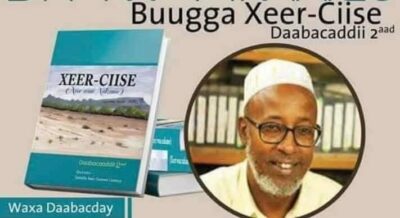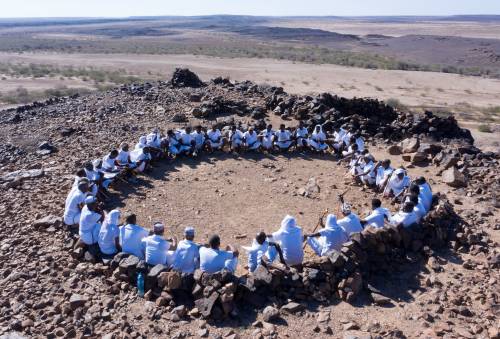Recognizing the Architects Behind the UNESCO Recognition of Xeer Ciise: Key Figures in Somali Cultural Heritage
The recent UNESCO recognition of Xeer Ciise, the oral customary law of the Issa-Somali communities in Ethiopia, Djibouti, and Somalia, is a monumental achievement for Somali culture. This centuries-old legal system, which unites communities and ensures justice, was officially added to UNESCO’s list of Intangible Cultural Heritage, acknowledging its vital role in preserving Somali cultural practices across the Horn of Africa.
The recognition, granted during the 19th session of UNESCO’s regional committee in Asunción, Paraguay, reflects the global significance of Xeer Ciise in promoting human rights, environmental protection, and conflict resolution.
However, this achievement was not a gift, it resulted from the relentless work of key scholars, elders, and cultural advocates who have safeguarded and elevated this legal tradition to an international stage.
They are Dr. Ali Moussa Iye, Abdalla Osman Haji, Ibrahim Ali Ahmed, and Honorable Ayan Ali Moussa. They have all been pivotal in ensuring the survival and global recognition of Xeer Ciise as a crucial part of Somali cultural heritage. Each of these individuals has played an indispensable role in documenting, preserving, and advocating for the recognition of Xeer Ciise.
Dr. Ali Moussa Iye, a scholar and former UNESCO official

Dr. Ali Moussa Iye, a Djiboutian scholar, author of Le verdict de l’arbre (The Verdict of the Tree), has been with UNESCO since 1996 and leads UNESCO’s history projects. He was the first to conduct extensive academic research on Xeer Ciise, positioning it within the context of African indigenous governance. His doctoral thesis and advocacy were central in securing UNESCO recognition as an intangible cultural heritage.
Abdalla Haji, a veteran journalist, author, and former media producer at Radio Television Djibouti, helped bridge the gap between academia and the public by documenting and disseminating Xeer Ciise through media outlets.

His work ensured that Xeer Ciise remained a living tradition within Somali society.
Ibrahim Ali Ahmed, a researcher at the Center for Education and Research in Djibouti (CERD), spent decades researching and documenting the legal and cultural frameworks of the Issa-Somali community, further cementing the significance of Xeer Ciise.

Lastly, Honorable Ayan Ali Moussa, Ethiopia Member of Parliament and founder of the Sitti Heritage Institute, played a crucial role in bringing Xeer Ciise to the global stage through her leadership and advocacy, securing the UNESCO recognition.

Together, these individuals have ensured the survival and celebration of Somali traditions, leaving an indelible legacy in the preservation of Xeer Ciise for future Somali generations and for the world.
By Mohamed Hadi | X: @Gafdiid7


COMMENTS